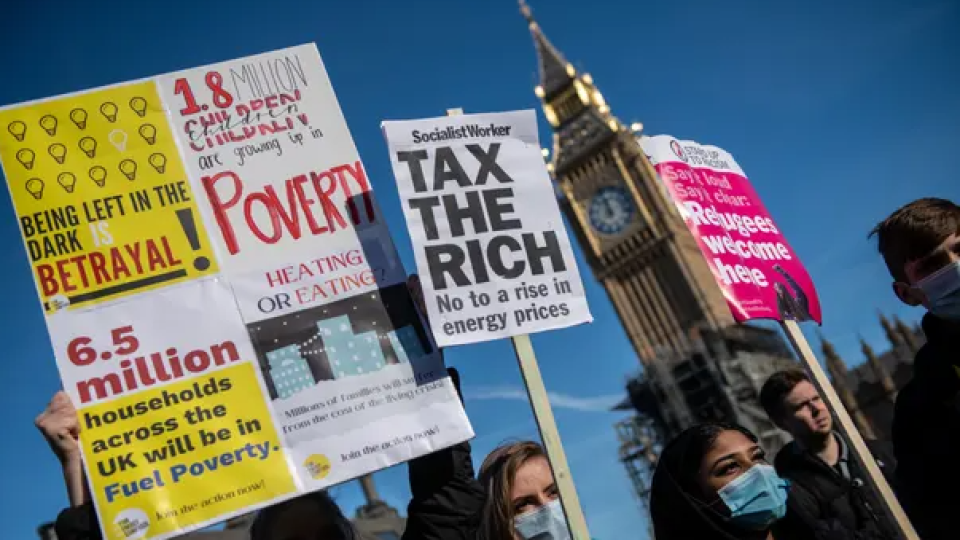A wave of rising bills and tax hikes coming into effect in April will leave a family on a £50,000 annual income almost £700 a year worse off, according to a study of the damaging effects of the cost of living crisis.
Unions have warned that an increase in the minimum wage will not be enough to offset the pressure on hard-pressed families. Households at the bottom of the income scale will face the hardest squeeze relatively, according a study by the CEBR economic consultancy undertaken for the Guardian.
It details how bills for dental work, prescriptions, water, broadband and car tax will jump as government departments and regulated companies are allowed to impose inflation-busting rises. Average council tax bills will increase by £99 from 1 April, topping £2,000 for the first time.
The hikes come as households face an unprecedented squeeze on their finances, as wage growth in the UK lags behind headline inflation of 10.4%.
It emerged this week that supermarket price inflation in the UK had hit another record high of 17.5%, lifting the average annual household grocery bill by £837 to £5,617.
Broadband and mobile phone customers face big “mid-contract” increases – in many cases of between 14% and 17% – in their monthly bills from April.
BT, TalkTalk, Three and Vodafone are among the big telecoms suppliers that are contractually allowed to increase their bills in line with one of the December, January or February official inflation rates, plus a further 3% to 3.9% on top.









Leave a comment